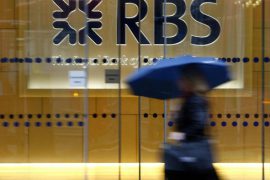It has come as no surprise to financial experts that Chancellor George Osborne has given his backing to parts of both the Vickers’ banking report as well as to suggestions in the Independent Commission on Banking. The bottom line is that government expects banks to keep a larger cushion against losses and to expect less bailout money from the taxpayers.
As well, Mr. Osborne is backing the Vickers’ suggestion that retail banking needs to be protected from investments which are too risky. In an effort to avoid a financial disaster similar to that of 2008, changes are being made. The Chancellor also announced that the RBS, state owned bank, would be significantly reducing the level of its investment banking.
One of the most important aspects of the changes being legislated is to ensure that deposit bearing accounts will be ring-fenced in and not allowed to be affected by high risk investments. In the past, unsecured loans were known to take precedence when banks began to fail and this will not be the case with the new rules in place.
Deposit bearing accounts will now be first in line to recoup money and now the British economy will have a separation of risky investment banking and high street banking. According to the Chancellor, government’s goal is to protect the economy and taxpayers from banks that simply grow too large. The emphasis is on keeping banks from getting ‘too big.’
Another area of focus will be that banks need to have bigger ‘cushions’ in the event that large losses occur, making banks better able to withstand them. In the end, these changes being instituted will cost the banking sector anywhere from £3.5 billion to in the vicinity of £8 billion but the benefit to the economy is evident in that a repeat of the 2008 financial crisis could be avoided.





